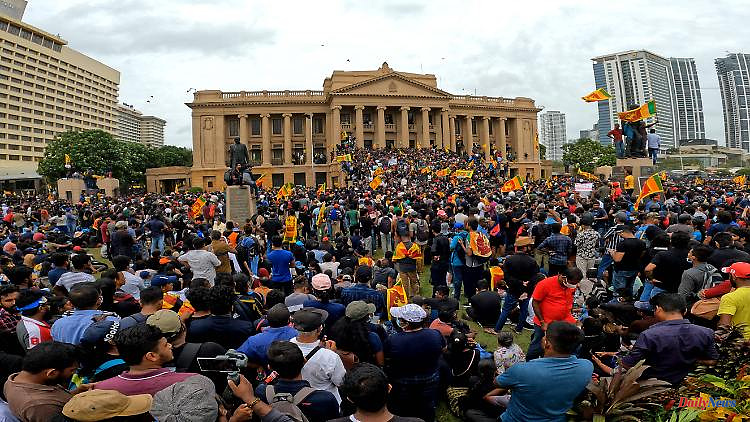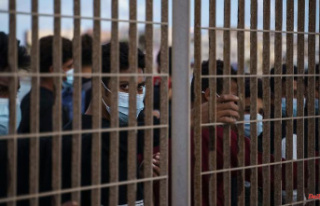The government in Sri Lanka is capitulating to the massive protests in which hundreds of thousands of people are taking part. When demonstrators storm his residence, President Rajapaksa goes into hiding. Absurd scenes are taking place in the house of another member of the government.
After hundreds of protesters in Sri Lanka stormed the residence of President Gotabaya Rajapaksa, he is facing resignation. According to information from security circles, security forces were able to bring the head of state to safety shortly before the storming. Parliament Speaker Mahinda Abeywardana later announced that Rajapaksa had agreed to step down next week.
Prime Minister Ranil Wickremesinghe, who would take over the president's duties if the president resigned, called a special government meeting with opposition politicians after the presidential palace was stormed and offered his resignation. In order to "ensure the security of the citizens", Wickremesinghe "agreed with the recommendation of the opposition leaders" to clear the way for a new unity government, his office said.
However, he was apparently unable to calm the anger of the demonstrators: In the afternoon, a crowd also entered Wickremesinghe's private residence and set it on fire, as the Prime Minister's office announced. Pictures on online networks showed a crowd cheering the fire.
Mass protests have been going on in Sri Lanka for weeks because of a severe economic crisis. According to the police, hundreds of thousands of people had gathered at Rajapaksa's official residence in the morning. TV footage showed hundreds of them climbing over the fence of the presidential palace. Soldiers fired into the air to push the crowd back until Rajapaksa was safe, according to defense sources.
The demonstrators then strolled through the palace relatively unhindered. Live videos on online networks showed some splashing in the president's swimming pool and curling up laughing in the palace's bedrooms. People also broke into the nearby presidential office, in front of which demonstrators have been camping for three months.
The head of state had been "taken to safety" outside the capital and was being protected by the military in a secret location, according to defense circles. Private TV stations showed a convoy of vehicles at Colombo International Airport. Whether Rajapaksa would leave the country remained unclear. The demonstrators blame him and the government for the country's disastrous economic situation.
According to government representatives, it was initially completely unclear how to proceed. "We are awaiting instructions," said a senior official. In the afternoon, Parliament President Abeywardana announced the head of state's resignation in a television speech. "To ensure a peaceful transition, the President said he would step down on July 13," he said.
The authorities had imposed a curfew on Friday to prevent the protests on Saturday. However, after pressure from opposition parties, lawyers and human rights activists, the order was lifted. She had been largely ignored by the demonstrators anyway. Around 20,000 soldiers and police officers were sent to Colombo to protect the President, according to the authorities. Three people with gunshot wounds were taken to the capital's largest hospital. According to the hospital, 36 others were treated for breathing difficulties after the use of tear gas.
Because of the serious economic crisis, the government is no longer able to finance the most important imports such as food, fuel and medicines. Meanwhile, Sri Lanka has asked the International Monetary Fund and Russia for help.
Mass protests against the government escalated for the first time in May. Nine people were killed and hundreds more injured. The government of Mahnda Rajapaksa then resigned. The brother of the resigning head of government, President Gotabaya Rajapaksa, remained in office. A major trigger of the worst economic crisis since the South Asian country gained independence in 1948 was the slump in international tourism as a result of the corona pandemic. The government was also accused of mismanagement.












